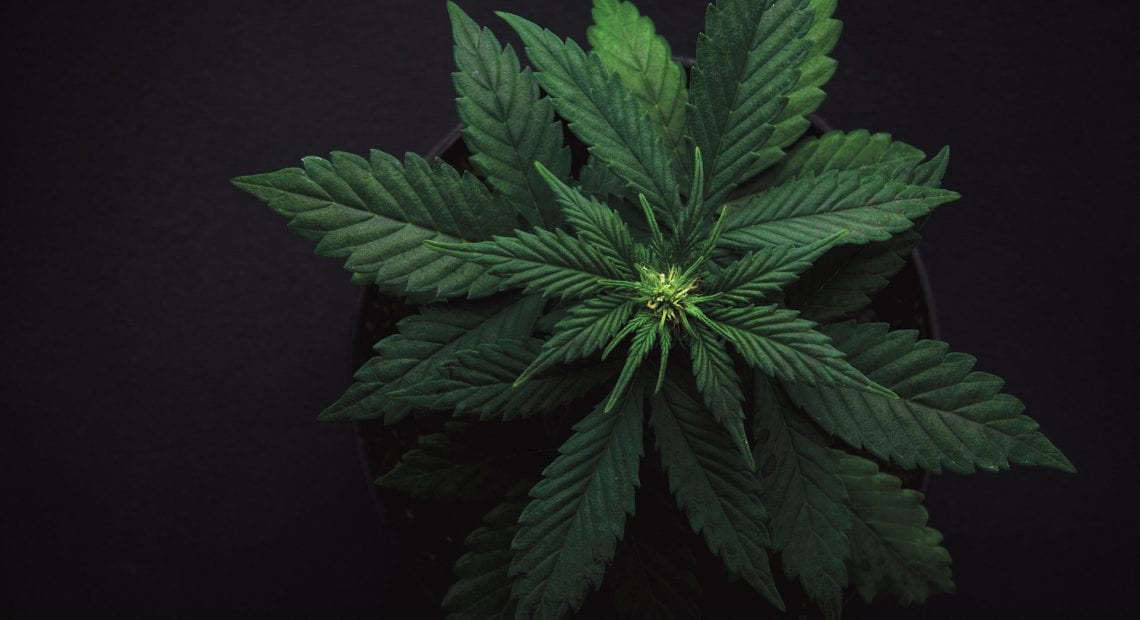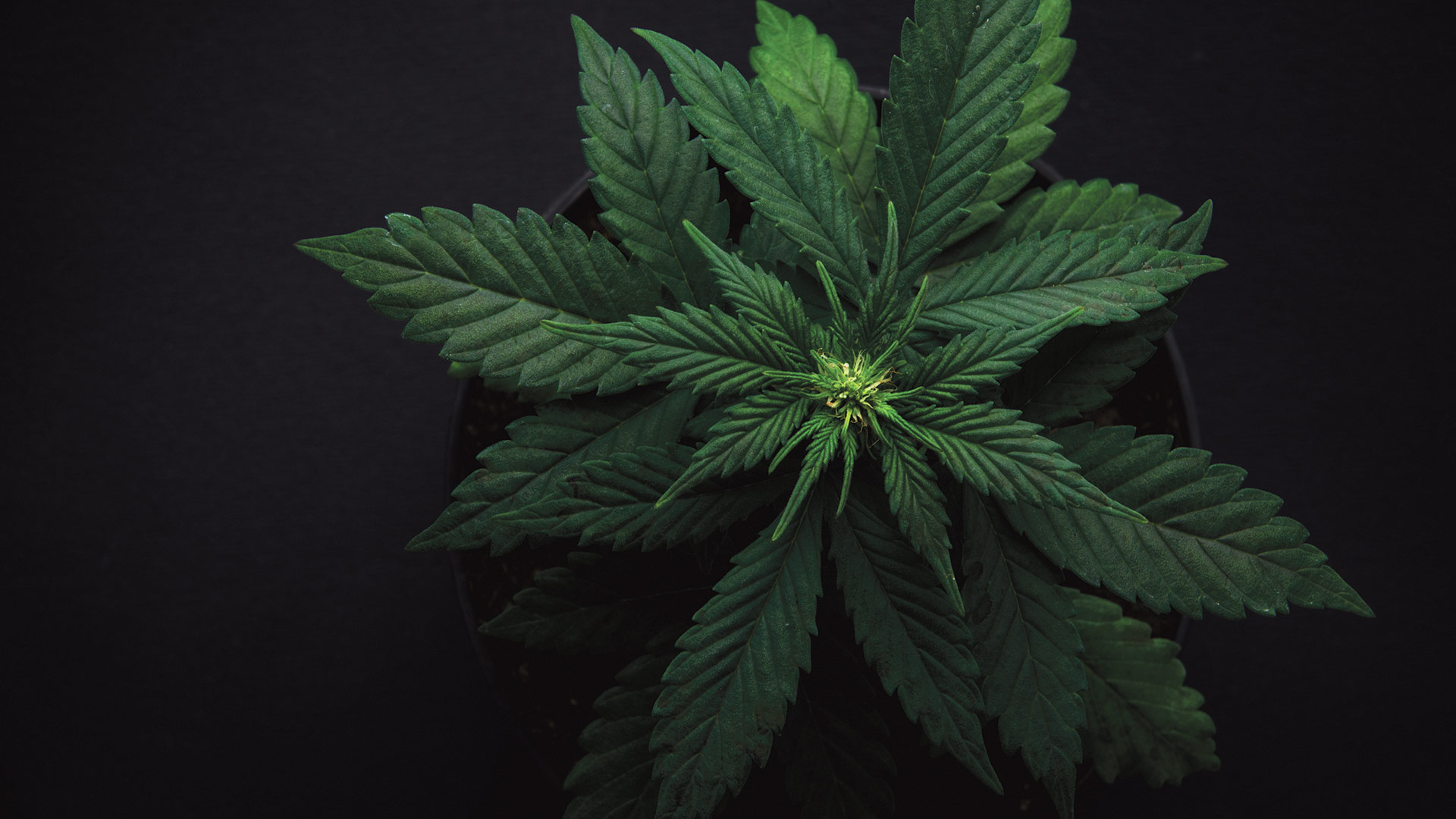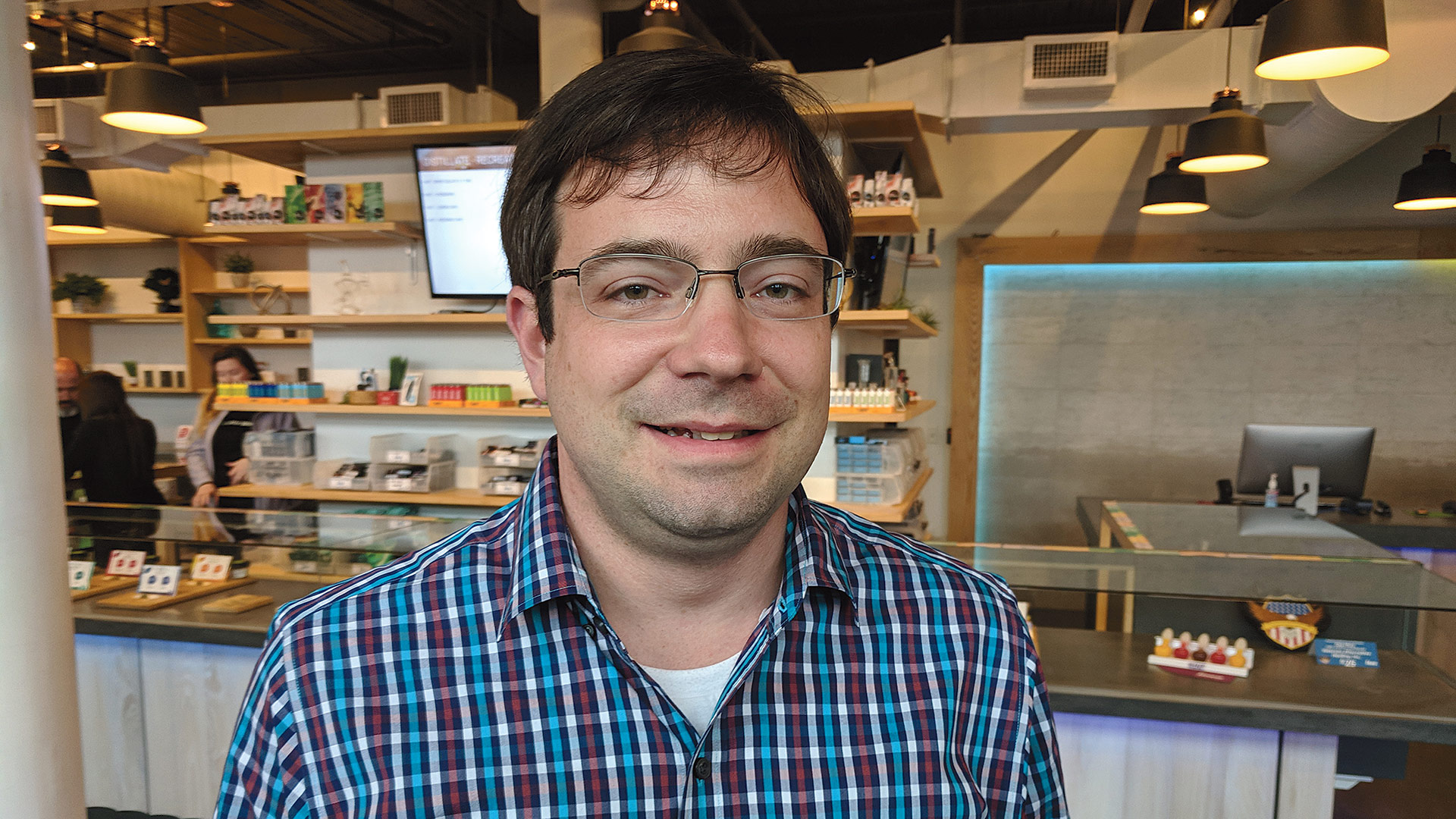
Cannabis Businesses Benefit Communities in More Ways Than One
Hopes Are High
 After recreational marijuana use became legal in Massachusetts in 2016, the expectation was that retail stores would pop up quickly within a couple of years. That hasn’t happened, as the state — and host communities — have taken a deliberately measured approach to permitting. But with early returns strong from a few shops, and towns reporting solid tax benefits and no real community disruption, the pace of openings should begin to increase — and so will the economic benefits of this new industry.
After recreational marijuana use became legal in Massachusetts in 2016, the expectation was that retail stores would pop up quickly within a couple of years. That hasn’t happened, as the state — and host communities — have taken a deliberately measured approach to permitting. But with early returns strong from a few shops, and towns reporting solid tax benefits and no real community disruption, the pace of openings should begin to increase — and so will the economic benefits of this new industry.
If Western Mass. was full of people who thought the sky was falling when recreational marijuana was legalized, well, Mark Zatyrka thinks fewer of them are saying the same thing now.
“I knew it would change. But I feel like it’s changed at a more rapid pace than I would have expected,” he said of public perceptions about the new access to cannabis products in the Bay State. “When we held our public meetings, we had a few folks who thought we were going to destroy the world and everything would come crashing down once we opened. But the opposite has been true.”
Take the location of INSA, the cannabis dispensary he owns in Easthampton, which has sold marijuana for medical purposes since February 2018, but began selling for recreational, or adult, use in December. Tucked beside Eastworks at the rear of the Keystone Mills building on Pleasant Street, he said some may have worried about INSA’s proximity to a nearby park where people hike.
“But, really, we bring more people to the area, we have cameras all over the place, it’s well-lit, so it’s actually a safer place to be,” Zatyrka said. “If the perception was that customers are hoodlums who come in, go out back, and get high and do crime, well, look around — we serve almost every demographic you can imagine, from seniors to millennials, rich and poor, and they’re not violent criminals. They’re not here to cause trouble. Yeah, the perception has changed pretty rapidly.”
Perceptions — pro and con — of this new industry have undoubtedly shaped a permitting process, on both the state and local levels, that has moved more slowly than first expected when recreational use became legal in 2016. The state’s first adult-use retail shops were expected to be open last July, but instead, the first two opened in November, and the pace of new shops since then has been leisurely at best.
But they’re coming. And the ones that are open are changing those worst-case perceptions.

Mark Zatyrka says INSA has attracted a diverse array of customers since starting recreational sales in December.
Take New England Treatment Access (NETA) in Northampton, the Bay State’s first retailer of cannabis products for recreational use.
“For us, it’s been a positive experience,” Northampton Mayor David Narcewicz told BusinessWest. “We’re starting to see some of the economic benefits in terms of taxes, and I know our local businesses have been creative in embracing the new industry. Businesses back in November were offering specials to people who came into town and showed a receipt for shopping at NETA. If anything, I think the business community has been receptive.”
He noted that Northampton’s voters were among the most enthusiastic in their support of legal cannabis, both during the 2012 statewide vote to legalize medicinal marijuana, then for adult use in 2016. As mayor, he said, his approach has been to respect the community’s voice.
“So we’ve been very open and proactive; we created zoning regulations that essentially treat this new industry like any other business, and we did not impose caps on the number of retailers like many communities did.
“We also had the experience of having one of the first medical dispensaries in the state,” he added, speaking of NETA’s original business plan. “We had a track record of seeing how they had operated and had the chance to see what the potential impacts were. They’ve been a good member of our business community; they worked with us to make sure their opening went smoothly, and have been working with surrounding businesses to make sure there’s no disruption.”
Stories like this are why, despite the slow rollout of pot shops so far — and state tax revenue well under early projections — proponents are confident that the trends toward greater public acceptance of this industry, and tax revenues to match, will soon accelerate.
“As an industry, we’ve done a good job to ensure that things are done correctly, and the state’s done a good job putting measures in place to help ensure it is a safe industry and people are getting a safe product and it’s dispensed in a safe way,” Zatyrka said. “The state did a lot of things right, which is why we’re seeing a successful rollout. I know some people wish it moved quicker, but I understand why it didn’t. There are thousands of applications, a lot of inspections, a lot to oversee. It takes time. It’s a new industry for everybody.”
Green Growth
As part of its new marijuana laws, Massachusetts imposes a 17% tax — a 6.25% sales tax plus a 10.75% excise tax — on cannabis businesses, while cites and towns take another 3%, plus whatever else they may choose to impose as part of their host-community agreements.
In Northampton’s case, that’s an additional 3%, called a ‘community-impact fee.’ The city received two checks recently: $449,825 from the Department of Revenue representing the 3% tax rate for recreational marijuana sales in November, December, and January, and $287,506 from NETA itself, reflecting the 3% community-impact fee on recreational sales for December and January.
“When we held our public meetings, we had a few folks who thought we were going to destroy the world and everything would come crashing down once we opened. But the opposite has been true.”
Other towns are seeing their coffers benefit as well. Theory Wellness opened in Great Barrington in December, paying $90,000 in taxes to the town in its first month.
“They opened to long lines, which should level off as they get more competition,” Ed Abrahams, vice chair of the town’s Select Board, told BusinessWest last month. “This is new for all of us, but so far, there have been logistically few problems.”
Southern Berkshire County communities that embrace the cannabis trade are sure to benefit from the continued illegality of the drug in both Connecticut and New York, though leaders in both states have been talking about whether that should remain the case. Brandon Pollock, CEO of Theory Wellness, told the New York Post last week that about 15,000 New Yorkers have made purchases there since its Jan. 11 opening.
“I’d say we get dozens, if not hundreds, a day from the greater New York City area,” he noted. “We get people coming up in Zipcars, people carpooling, people who say they hardly ever drive at all — but will drive to purchase cannabis.”
That sort of consumer response is intriguing to towns that see this industry as a new economic driver.
“Some cities have been great to work with, some a little more difficult to work with,” Zatyrka said. “Easthampton is very progressive city, and early on it was very obvious they wanted us here.”
That’s important from a competition perspective, he said, because the application process is already time-consuming, and communities that want to make it even more difficult to move through permitting and craft a host-community agreement can tie up a project for years, while other shops in more amenable towns are opening and picking up crucial market share and customer loyalty.
“Easthampton was great,” he went on. “Everyone wants to find a solution instead of putting up roadblocks. They want us to be successful, to get their name on the map, and they saw the benefits early on.”
He’s seeing a gradual shift, too, in where proposed projects will be located, noting that, when INSA started cultivating marijuana for medical use, most such outfits were setting up in old mill buildings or industrial parks. “Now it’s not so restrictive — people can open up on Main Street, and wind up in locations that are made for retail use, for people to come visit.”
That’s certainly the goal in Northampton, which is looking at myriad applications from cannabis manufacturers, cultivators, testing labs, and retail establishments, Narcewicz noted. It welcomes them because it sees value in how NETA, which isn’t even located downtown, has impacted business.
“NETA has created good-paying jobs in the community, and it’s an important way to expand our tax base and grow our local economy,” he said. “We have a local economy focused on retail, dining, entertainment, and a very vibrant cultural economy. And I think this complements it.”
There have been traffic and parking challenges, he added, “but if you talk to most retailers, downtowns having too many visitors is never a bad thing. We’re kind of equipped to handle a lot of visitors. And NETA has been very responsive in terms of renting additional parking from neighboring businesses, which helps them as well by providing an income stream. So far, it’s been a very positive experience, and there’s no reason to believe that’s going to change.”
Making a Name
BRIGADE has certainly benefited from this new industry. The Hadley-based brand-services company has worked with INSA extensively, including the creation of the designs for all its products and marketing.
“Everyone calls cannabis the wild west, and it is from a branding and design perspective, too,” said Kirsten Modestow, BRIGADE’s owner and executive creative director. “The rules for a whole category are being written overnight. That’s challenging, but it’s also some of the most exciting stuff we’ve ever worked on.”
With some cannabis businesses coming out with 100 or more products, it presents a unique branding challenge, she added, because the goal is not only to create a memorable look, but to help customers, many of whom have little experience with marijuana, navigate the products.
“One of the upsides of this industry is the impact it’s having on our communities, and it’s providing a lot of new opportunities and jobs,” she said. “It’s providing a lot of work for people, even tapping into farmers and other people who have services to offer and know what they’re doing.”
The education aspect Modestow touched on is one that continues in the store, Zatyrka said. The sales associates — he prefers that title to the flip industry term ‘budtenders’ — are the same ones who have worked with medical patients for a long time, and they have the training to dig deep into the science behind the products, so they can effectively explain them.
“We understand it’s a product that needs to be consumed safely, and we take that seriously,” he said. “We don’t want to be liable for someone who doesn’t know what they’re doing and eats an entire chocolate bar and has to go to the ER. We do all in our power to prevent that from happening.”
The coming months and years will see more education (and more tax revenues) as pot-shop openings pick up the pace — including Evergreen Strategies, LLC, which recently inked a host-community agreement with Belchertown to bring a facility to that town as early as this fall.
The Boston Globe recently cited industry analysts who say Massachusetts has a much slower local approval process and a more complex system to navigate than other states, and the state Cannabis Control Commission has placed a premium on an adult-use regulatory structure that supports public health and public safety. The measured pace ensures that stores pass inspections, sell lab-tested products, hire vetted workers, and track their products.
“It’s a growing industry, and will continue to grow,” said Zatyrka, who plans to open an adult-use dispensary in Springfield and has a cultivating and manufacturing license in Pennsylvania as well. Meanwhile, INSA is doubling its cultivation — located directly above the Easthampton store — and is looking to triple it in the future. “We’re still a few years out before we can meet the demands of the state. So it’s going to be hard work until then to keep up our supply with demand.”
The work is rewarding, though, especially for someone who treated his chronic pain for more than 15 years with oxycontin, oxycodone, morphine, and methadone, and suffered side effects that drastically outweighed the benefits.
“Thanks to cannabis, I was able to stop taking them,” Zatyrka said. “Cannabis helped with the withdrawals, and now I only use cannabis to treat my chronic pain, and it works 100 times better than all the opioids. I know firsthand the power of cannabis versus painkillers.”
He tells that story not because it’s unique, but because it’s representative of many people he comes across, with stories about how cannabis has helped them with seizures, Crohn’s disease, arthritis, and multiple sclerosis. And if legal adult use is helping to tear down the last bits of stigma around cannabis, he’s all for it.
“It’s incredibly gratifying to hear the stories and how grateful people are,” he said. “They’re able to get benefits from cannabis, and don’t have to hide it like they once did.”
Joseph Bednar can be reached at [email protected]m





